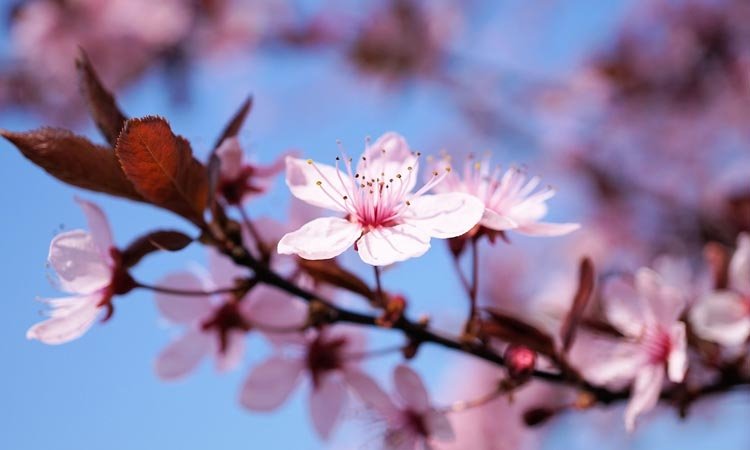A friend of mine mentioned how he often feels melancholy after experiencing something beautiful. I wasn’t sure what he was talking about. It wasn’t until I started to recall my feelings at the end of a magnificent sunset, a fantastic day, or a moving performance that I realized how often I feel the same.
Strange, this paradoxical mix of joy and sorrow at things we do enjoy. Could it be that it reminds us of the transitory nature of such pleasures? These great feelings linger for a moment and then vanish into the past—living only in our memories.
This mysterious feeling is universal. The Japanese call it mono no aware, which means “the pathos of things.” It is something they experience yearly when the cherry blossoms are in all their glory. Sometime around April, people picnic and gather under the flowers to sing, meditate, and fully savor a moment that they know will fade away in a week or two.
The Japanese try to capture the special short-lived cherry blossom season, called sakura, in their flower arranging, tea ceremonies, and especially in their haiku poetry, which is like a snapshot of an event in nature that conveys a deep feeling—often a sad, sweet thought.
Asu araba araba to omou sakura kana.
“Tomorrow and tomorrow
Will they still be?
Cherry blossoms.”
When I lived in Jordan, my favorite time of the year in Jordan was in the spring, when the rains came and the barren desert burst into a symphony of floral color. One time we went to the Wadi Rum desert during a rare rainstorm and marveled at how the mountain peaks abounded with waterfalls cascading down into the sandy valley below. We were trying to get out of the rain, but the Bedouin locals loved it and drove back and forth through the newly formed streams in their jeeps. They were like kids splashing in puddles. They knew how soon the precious liquid would soak into the insatiable desert sands.
Each year there would be one or two days when snow fell and everything would be covered in a white blanket. On such special days, we would take a walk around the block to see the mundane transformed into a magical wonderland of snow and ice. The kids would build snow forts and have all-day snow fights, loving every minute of it. The next day, the sun would come out and it would all disappear.
Music and drama are inherently ephemeral in their beauty. Perhaps that is why these things give us moments of pure joy, and instill within us the desire to preserve those moments.
The Bible contains a few images of ephemeral beauty. One that comes to mind is found in Isaiah 40:8, where it says “the grass withers, and the flowers fall.” 1 Then it goes on to say that only “the Lord’s word endures forever.” 2 The Bible also talks about how our lives on earth are like vapor—we’re here a little time and then we vanish. 3 I think God made the wonderful moments we experience—as well as our whole lives—this way, so that we would learn how to make the most of those moments, and more importantly, the most of our lives.
However, the Bible also encourages us that God’s Word and love will never pass away. Jesus told us, “I will never leave you nor forsake you.” 4 Three of the Gospels tell us that: “Heaven and earth will pass away, but My words will by no means pass away.” 5
Realizing that all the pleasures of this life are fleeting helps keep my perspective on what really matters. There are times when I feel I am a “wayfaring stranger” passing through this world of woe and wonder, but it helps to know that what’s done in love will last.
I recently gave one of our family photo albums to my daughter to “keep safe.” However, the suitcase that they were in was lost by the airline! At first I was devastated at the loss, until I recognized that those moments that were recorded in those photos live on in my memories and in the lives of my children, something that no one can lose or steal from us.
I believe that as we channel God’s love and Word to others, we can be assured that we are building something that will last—something we can enjoy forever and that will never fade away.
